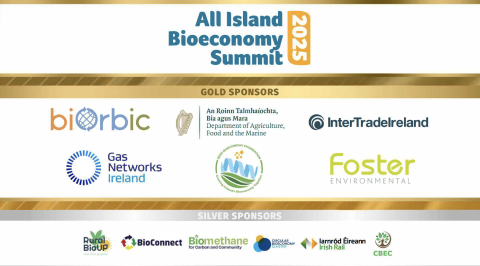3F GREEN MODEL 5th Study Visit- Ireland
Strengthening Transnational Collaboration in the European Circular and Bio-economy
On May 13th and 14th, Munster Technological University, Ireland played hosted project partners, and institutional stakeholders from Sicily, Latvia, Hungary, and Asturias as part of 3F GREEN MODEL.
Our programme began with participation in the All-Island Bioeconomy Summit in Enfield, Co. Meath, where delegates had the oppertunity to engage with Irish researchers, policymakers, and practitioners working in sustainability, rural development, and innovation.
The summit provided a valuable forum to contextualize the project's work within the Irish bioeconomy landscape and to explore shared challenges and emerging opportunities. The presentations at the summit collectively underscored a robust, well-funded push across the island of Ireland to develop a sustainable, circular bioeconomy, with a major emphasis on biomethane, marine innovation, nutrient recovery, and rural enterprise development.
Following the summit, on May 14th, the project partners convened in Limerick for in-depth discussions on project progress, exchange of good practices, and the co-development of future workstreams. A particular highlight was the keynote presentation by Veronica Menendez, CEO of Agrolinera, who detailed her company's applied research in dairy and cheese waste valorisation. Using advanced sensors, hardware integration, and cloud-based analytics, Agrolinera’s work exemplifies the practical application of scientific innovation to enhance both environmental and economic outcomes.
To support strategic foresight and stakeholder development, Niall O’Leary facilitated a highly participatory strategy session focused on building capacity and aligning stakeholder engagement with long-term project goals—underscoring the importance of embedding research outcomes into policy and practice.
The delegation also visited the Centre for Applied Bioscience Research (CABR) at the Technological University of the Shannon (TUS) in Limerick. There, Dr. Tim Yeomans and Dr. Mercedes Alonso Gómez from the Sustainable Development Research Institute shared recent research outputs on biomass valorisation, with case studies including wool and seaweed—materials traditionally overlooked, but now being reimagined through the lens of circular bioeconomy innovation.
Throughout the week, conversations were shaped by a shared commitment to interregional knowledge exchange, applied research, and the pursuit of sustainable transformation in Europe’s food, farming, and forestry sectors.
As we move forward, the collaborative momentum generated during our time in Ireland will inform the next phase of our work—driven by evidence, co-creation, and a strong network of academic and industry partners across Europe.

